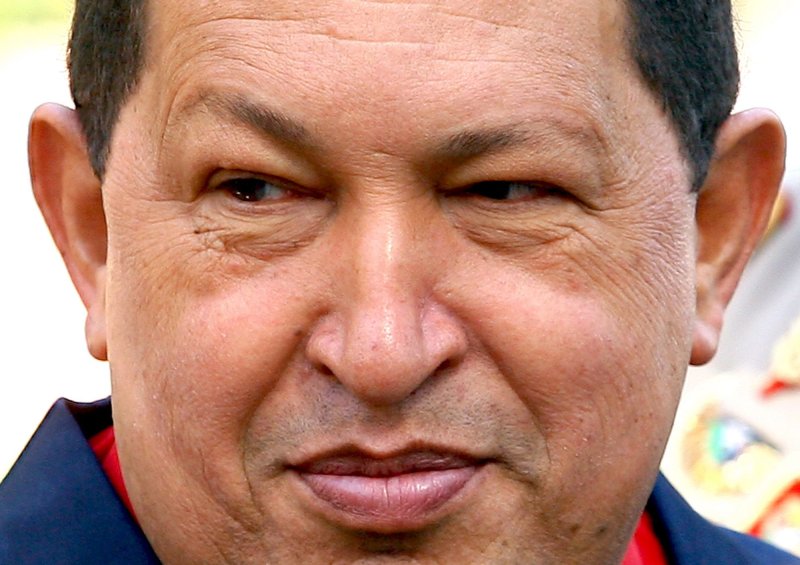Venezuela's President Hugo Chavez will seek re-election despite his battle with cancer. UPI/Maryam Rahmanian |
License Photo
CARACAS, Venezuela, May 3 (UPI) -- As Venezuelan President Hugo Chavez clings to power while battling cancer, the country's future is further clouded by unbridled government spending that has no relation to the budget, financial analysts said.
The strongest criticism of the government's spending spree comes in a Fitch Ratings special report that cited "opaque off-budget" expenditure undermining the transparency of Venezuela's public and external accounts.
Fitch called it a "costly parallel fiscal policy."
"The growth in off-budget spending has decreased the transparency of Venezuela's public and external accounts and increased their discretionary character," Fitch Ratings said in a special report on the Latin American country.
"Information on these funds' balances, quality of investments and cash flows is limited, thus increasing the challenges to assess the sovereign's actual financial strengths and vulnerabilities."
On April 4, Fitch revised Venezuela's rating outlook to negative from stable.
In addition, Fitch Latin America's Erich Arispe said, "The policy choice of transferring an increasing share of the oil windfall to opaque and highly discretionary mechanisms has resulted in a visible deterioration in Venezuela's external and fiscal credit metrics in spite of exceptional oil prices."
Fitch said its downgrade reflected the country's "weakening policy framework which has resulted in increased vulnerability to commodity price shocks and deterioration in credit metrics, as well as rising political uncertainty related to the 2012 electoral cycle."
This was a reference to Chavez's decision to seek re-election this year despite uncertain health and continuing treatment for cancer. Chavez is spending more and more time in Cuba for cancer treatment amid speculation over a battle for succession, seen likely before the Oct. 7 presidential election.
Fitch cited spending issues amid the uncertainties over Chavez's health.
A significant portion of Venezuela's public investment and social spending is executed by off-budget entities and vehicles such as state-owned oil company PDVSA, the National Development Fund (Fonden), the Joint China-Venezuela Fund, a long-term financing agreement with China.
Fitch said spending through the four mechanisms combined may have reached 14.7 percent of Venezuela's gross domestic product in 2011, or a hefty 57 percent of estimated central government spending.
The continued transfer of international reserves to Fonden and greater discretion for PDVSA to retain a large portion of oil receipts have limited the central bank's capacity to provide foreign exchange to the economy, leading the government to address the excess demand with the issuance of FX-denominated bonds, Fitch said.
Venezuela's external liquidity position is weaker than similarly-rated sovereigns, especially taking into account the country's exposure to swings in commodity prices, both in terms of export revenues and assets. Oil accounts for 95 percent of Venezuela's total exports) and gold holdings equal 67 percent of gross international reserves.
Despite the downbeat comment, Fitch said it does not consider the sovereign to be facing significant financing pressures given current oil price levels, relatively low amortizations and financing flexibility.
Moreover, a captive domestic market and significant bilateral financing, particularly with China, have provided ample funding space to meet public-sector borrowing needs.





